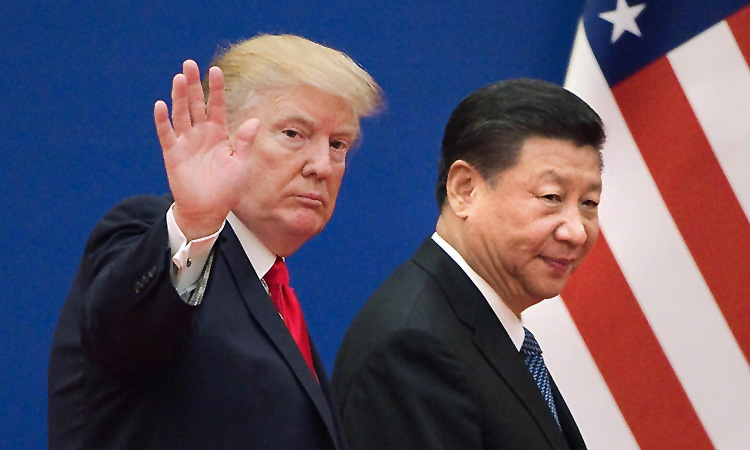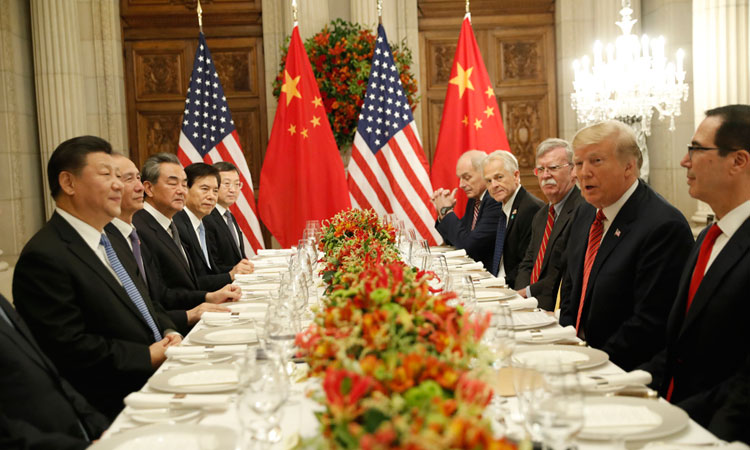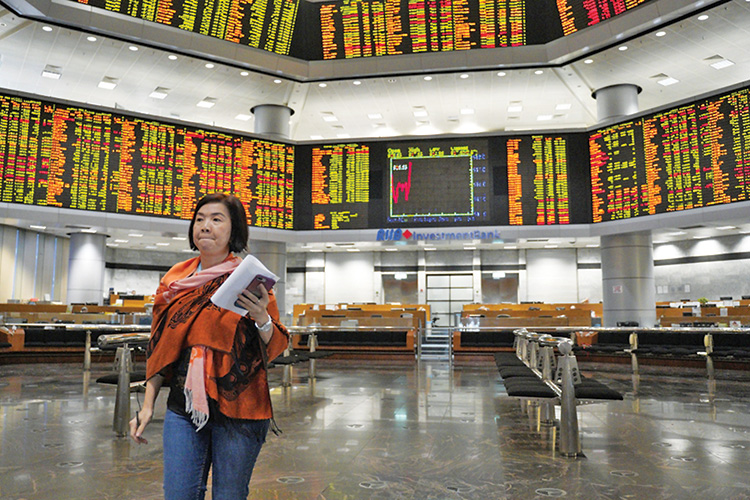Trade war will compound global woes

Donald Trump, Xi Jinping
It is unfortunate that the trade war has entered a new phase of turbulence at a time when the global growth itself is shaky.
On expected lines, Beijing too has threatened to unleash “countermeasures” against US plans to impose tariffs on $300 billion in Chinese goods.
Just recently, the International Monetary Fund (IMF) had indicated that global trade expanded by merely 0.5% in the first quarter of 2019, marking the slowest year-on-year pace of growth since 2012.
It had also signaled that a more significant slowdown is possible.
IMF Chief Economist Gita Gopinath stated that she did not see signs of a recession, but did see significant downside risks for global growth going forward, including escalating trade wars.
With the IMF lowering its forecast for global growth this year and the next, the world community should address more seriously prevailing concerns caused by factors such as additional US-China tariffs, technology tensions and a disorderly Brexit.
The abrupt end to a truce in the trade conflict capped a critical week for global markets after the US Federal Reserve delivered a widely anticipated interest rate cut but played down expectations of many more ahead.
News that Trump will make an announcement about trade with the European Union later on Friday did little to soothe frayed nerves.
Markets around the globe dived into a sea of red, with the pan-European Stoxx dropping 2% in its sharpest daily tumble of 2019.
The trade-sensitive DAX and France’s CAC 40 dropped 2.7%, the former hitting a two-month lows.
Surprisingly, the US decision came after trade negotiators held talks in Shanghai this week, the first face-to-face discussions since Trump and Chinese President Xi Jinping agreed to a truce in June.
The scene is not all rosy for Washington too. The US trade picture dimmed overall in June as exports of passenger cars, gems and computer accessories all fell, as did sales of telecommunications equipment, industrial machinery and jewellery.
The United States continued to add new jobs last month but at a slower pace, another sign the economy is weakening.
With tariffs to hit many consumer goods, the impact of the trade war on the US economy itself is likely to intensify.
As experts point out, possible retaliatory measures by China could include tariffs, a ban on the export of rare earths that are used in everything from military equipment to consumer electronics, and penalties against US companies in China.
So far, Beijing has refrained from slapping tariffs on US crude oil and big aircraft, after cumulatively imposing additional retaliatory tariffs of up to 25% on about $110 billion of US goods since the trade war broke out last year.
The global economy clearly remains at a delicate juncture and it would be pertinent to adopt policies to support growth.
What should not be forgotten is that the tariff war is weakening global growth and international commerce. Protectionist and unilateral approaches on trade are not the best way forward and only tend to fuel fear among investors.
Tariffs should not be used to target bilateral trade balances or as a tool to tackle disagreements.
In a highly connected world, moving further away from an open, fair and rules-based trade system cannot be termed sensible.







